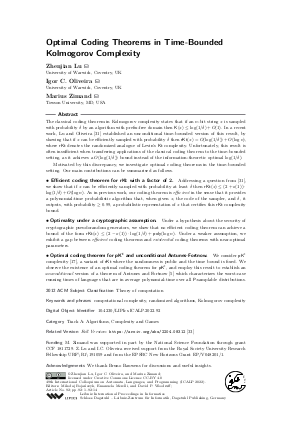LIPIcs.ICALP.2022.92.pdf
- Filesize: 0.73 MB
- 14 pages

 Creative Commons Attribution 4.0 International license
Creative Commons Attribution 4.0 International license






























Feedback for Dagstuhl Publishing